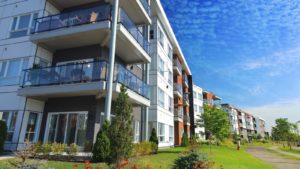Optimizing Cloud Asset Management Strategies for Improved Efficiency in Multi-Unit Residences
Optimizing Cloud Asset Management Strategies for Improved Efficiency in Multi-Unit Residences
Blog Article
In the current world, many individuals reside in multi-dwelling units, including flat buildings and condo complexes. These structures frequently utilize utilities such as electricity, H2O, and internet services. Managing these shared resources efficiently is crucial for not only the ecosystem and the tenants' well-being. Digital utility management approaches can help enhance the efficiency of these common utilities. Through using technology and data analysis, building managers can optimize how resources are used, leading to financial reductions and a better living environment for all.
One effective strategy for managing utilities in multi-unit units is the implementation of smart measurement devices. Intelligent measurement devices offer real-time information on energy and water usage. This data enables property administrators to detect patterns and trends in utility consumption. For example, if a specific apartment consumes considerably more H2O than others, the manager can examine possible drips or motivate the tenant to embrace additional water-efficient habits. Through tackling these concerns quickly, managers can reduce loss and decrease service costs for all tenants.
A further important element of cloud utility management is the implementation of eco-friendly technologies. Many multi-unit units can benefit from eco-friendly lighting, heating, and this post air conditioning systems. Such technologies not only lower power use but also decrease service bills. Building administrators can utilize digital systems to monitor the performance of these technologies and implement changes as needed. For example, if a heating system is not functioning functioning effectively, the administrator can schedule repairs or improvements to ensure optimal efficiency.
In addition to smart meters and eco-friendly solutions, cloud resource administration can enhance interaction between building administrators and tenants. A cloud-based platform can provide tenants with visibility to their utility usage data, enabling them to monitor their consumption. This openness encourages residents to be increasingly mindful of their utility consumption. Furthermore, building managers can send notifications about maintenance timing, eco-friendly advice, or community events through the platform. Improved interaction cultivates a feeling of togetherness and encourages residents to engage in utility-saving initiatives.
Finally, implementing cloud resource administration approaches can result in a greater eco-friendly residential space. By optimizing resource use, multi-dwelling units can considerably lower their carbon footprint. This is crucial not just for the residents but also for the environment. As more an increasing number of people become aware of environmental issues, they are likely to appreciate residing in a structure that prioritizes eco-friendliness. Property administrators who implement such strategies can attract environmentally conscious tenants, enhancing the building's reputation and potentially increasing its worth. In conclusion, effective digital utility management is essential for creating effective, pleasant, and eco-friendly residential environments in multi-unit buildings.